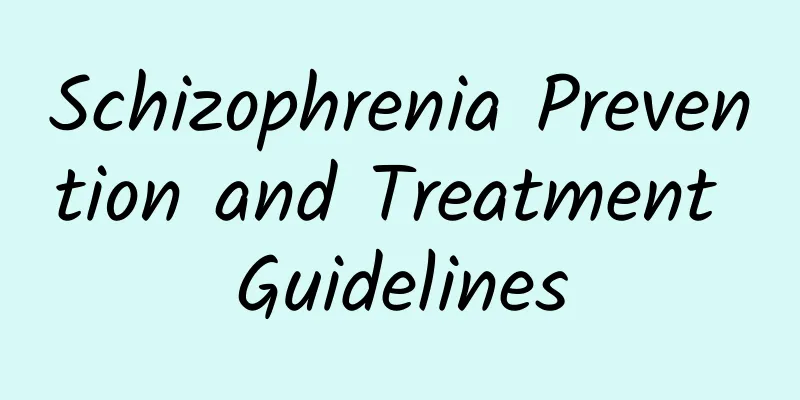Schizophrenia Prevention and Treatment Guidelines

|
Schizophrenia is a neurological disease. This disease is actually relatively rare. It is rare to encounter a few schizophrenia patients in life. It is generally a mental illness caused by various wishes. This disease can be cured, but it requires a slow process, and there are some precautions and other requirements. So what are the guidelines for the prevention and treatment of schizophrenia? Schizophrenia is a group of severe mental illnesses with unknown etiology. They usually develop slowly or subacutely in young and middle-aged people. Clinically, they often manifest as a syndrome with varying symptoms, involving multiple disorders in perception, thinking, emotion, and behavior, as well as incoordination of mental activities. Patients are generally conscious and have basically normal intelligence, but some patients will experience cognitive impairment during the course of the disease. The course of the disease is generally protracted, with repeated attacks, aggravation or deterioration. Some patients eventually decline and become mentally disabled, but some patients can remain cured or almost cured after treatment. Schizophrenia is a clinical syndrome consisting of a group of symptoms and is a multifactorial disease. Although the cause of the disease is still unclear, it is generally acknowledged that the individual's psychological susceptibility and the adverse factors of the external social environment play a role in the occurrence and development of the disease. Both susceptibility and external adverse factors may lead to the occurrence of the disease through the combined effects of internal biological factors. The factors that cause the disease in different patients may be more important in one aspect. The commonly used diagnostic standards abroad include the United States' Classification of Diseases and Diagnostic and Statistical Manual DSM-Ⅳ-TR and the WHO's International Classification of Diseases ICD-10. The commonly used diagnostic standards in China are the Chinese Classification and Diagnostic Criteria for Mental Disorders CCMD-3. Schizophrenia usually needs to be differentiated from mental disorders caused by organic diseases, mental disorders caused by drugs or psychoactive substances, mood disorders, paranoid disorders, obsessive-compulsive neurosis and other diseases. Antipsychotic drug treatment is the first choice for the treatment of schizophrenia. Drug treatment should be systematic and standardized, emphasizing early, adequate, and sufficient course of treatment, and paying attention to the principles of single medication and individualized medication. Second-generation (atypical) antipsychotics such as risperidone, olanzapine, quetiapine, etc. are generally recommended as first-line drugs. Clozapine, a first-generation and atypical antipsychotic, is used as a second-line drug. Electroconvulsive therapy can be used in combination with some patients in the acute phase or those with poor therapeutic effects. 10% to 30% of schizophrenia patients do not respond to treatment and are known as refractory schizophrenia. |
<<: Diagnostic criteria for schizophrenia
>>: Undifferentiated schizophrenia
Recommend
What are the benefits of tapping the inner thighs frequently?
Staying young and beautiful is everyone's wis...
The amount and color of implantation bleeding
When a pregnant woman just becomes pregnant, the ...
What causes men's white hair?
Many men will have gray hair when they reach a ce...
Is TCM effective in treating cough and chest tightness?
Many of our friends will have some troubles in li...
What tests should be done for hepatic hemangioma?
Speaking of some vascular diseases, the main one ...
Will lying down to breastfeed cause overbite?
In order to save trouble, some mothers like to fe...
What are the effects of burning grass jelly on humans?
Grass jelly is a common food with good nutritiona...
What to do if you have a stuffy nose due to a cold
Some people may ask, what should we do if we catc...
What medicine to take for enteritis during lactation
The lactation period is the time when a woman has...
My neck feels uncomfortable and a little swollen
The neck is uncomfortable and a little swollen. T...
Complications after gastrostomy
Some patients with esophageal cancer or brain dea...
What causes bitter taste in the mouth?
A bitter taste in the mouth is quite common in li...
Is lung abscess contagious? Uncovering the Contagiousness of Lung Abscess
From many aspects, the cause of lung abscess is i...
Shortness of breath after a little exercise
With the continuous improvement of living standar...
38 weeks lower abdomen like menstrual cramps
Pregnancy is the most uncomfortable period for a ...









